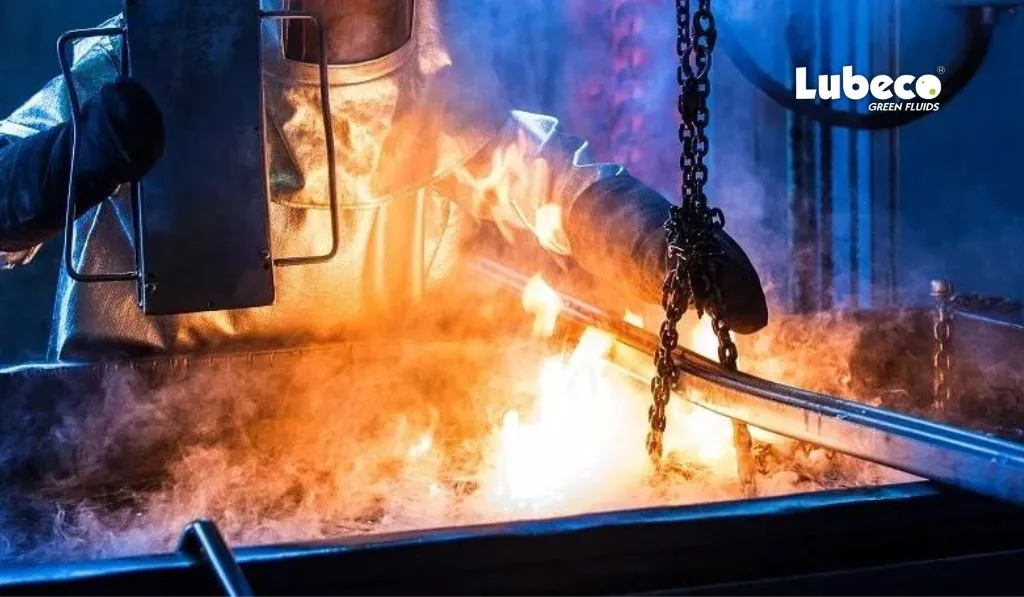Introduction:
In the realm of metallurgy, quenching oil plays a pivotal role in the heat treatment process, transforming metal properties to achieve desired hardness and strength. The effectiveness of quenching is heavily influenced by the type and grade of the quenching oil employed. In this comprehensive guide, we will delve into the various grades of quenching oil, their characteristics, and how selecting the right grade can significantly impact the outcome of metal heat treatment.
Understanding Quenching Oil:
Before we explore the grades, it’s essential to comprehend the primary functions of quenching oil. Quenching is a critical step in the heat treatment process, involving the rapid cooling of heated metal to achieve specific mechanical properties. The quenching oil serves as a medium to absorb and dissipate heat, preventing undesired transformations and ensuring uniform hardening.
Grades of Quenching Oil:
Fast Quenching Oils:
Fast quenching oils are designed for materials that require rapid cooling to achieve high hardness. They are typically used for alloys with high hardenability, such as tool steels. Fast quenching oils offer quick heat extraction, minimizing the risk of distortion and promoting uniform hardness throughout the material.
Medium Quenching Oils:
Medium quenching oils strike a balance between fast and slow quenching. They are suitable for a wide range of materials, providing a controlled cooling rate that reduces the risk of cracking and distortion. Medium quenching oils are often chosen for medium-carbon steels and alloys with moderate hardenability.
Slow Quenching Oils:
Slow quenching oils are tailored for materials that require a more gradual cooling process. They are ideal for low hardenability steels and metals that are prone to cracking if subjected to rapid quenching. Slow quenching oils help minimize thermal stress and improve the overall quality of the heat-treated metal.
Factors Influencing Quenching Oil Selection:
Material Composition:
Different metals and alloys have unique heat treatment requirements. Understanding the composition of the material being processed is crucial in selecting the appropriate quenching oil grade to achieve the desired mechanical properties.
Quench Severity:
The quench severity, or the cooling rate required, depends on the hardenability of the material. Assessing the hardenability helps determine whether a fast, medium, or slow quenching oil is most suitable for the specific application.
Uniformity Requirements:
Some applications demand uniform hardness across the entire metal piece. In such cases, selecting the right quenching oil grade is vital to prevent uneven cooling and ensure consistent mechanical properties.
Specialized Quenching Oils:
Polymer Quenchants:
Polymer quenching oils, often water-soluble, are used for specific applications where rapid cooling is required along with reduced fire hazard. They are commonly employed in the heat treatment of aluminum alloys.
Salt Quenchants:
Molten salt baths serve as quenching media for certain applications, offering precise control over the quenching process. Salt quenchants are favored for their ability to minimize distortion and provide a clean, scale-free surface.
Best Practices for Quenching Oil Usage:
Maintaining Oil Quality:
Regular monitoring and maintenance of quenching oil quality are essential. Contaminated or degraded oil can lead to uneven cooling, impacting the effectiveness of the heat treatment process.
Proper Quenching Techniques:
Adhering to recommended quenching techniques, such as agitation and proper immersion, ensures uniform cooling and minimizes the risk of distortion.
Temperature Control:
Monitoring and controlling the quenching oil temperature is critical. Deviations from the recommended temperature range can affect the final properties of the heat-treated metal.
Conclusion:
The choice of quenching oil grade is a critical determinant of the success of the heat treatment process. Understanding the characteristics of different grades, considering material requirements, and adhering to best practices contribute to achieving the desired mechanical properties in the heat-treated metal. As metallurgical processes continue to evolve, so does the importance of selecting the right quenching oil, ensuring that the products of today meet the demanding standards of tomorrow.










